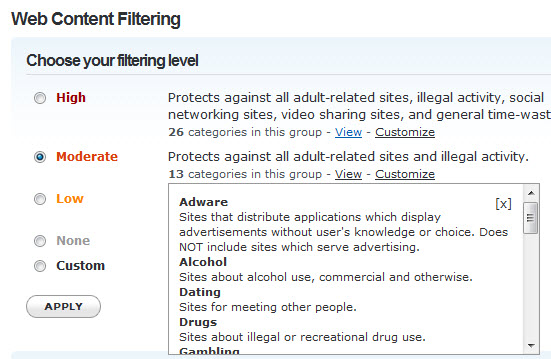Internet Service Providers should not filter the Internet
I'm following the UK's fight against porn on the Internet with fascination as it highlights how ideologists use something that everyone can agree on (protect children) to censor the Internet.
If you are not living in the UK you may not have heard about it, or only read about the initiative in passing.
A filtering program is applied to customers of major Internet Service Providers in the UK since the end of 2013 either automatically or on customer request.
The four major ISPs in the UK have agreed -- voluntarily -- to implement the Internet filter and while the how is left to each ISP, all have enabled these filters to a degree.
Sky announced recently for instance that it will turn on Sky Broadband Shield for all new customers in 2016 instead of asking them whether they want the filter enabled.
According to Sky, it gives customers "control of their household internet experience by allowing them to filter what sites can be accessed".
The ISP fails to mention that options to do so exist today already, either by being responsible, by using parental control software, or by using other filtering software that is installed on local computer systems or the router.
Something is rotten in the state of England

Third-party web filtering by OpenDNS
While it is certainly important that children access only age-appropriate content on the Internet, it needs to be discussed who should be responsible for ensuring that.
The Internet filter, or Great Firewall of Britain, is not effective in protecting children. While it blocks a good chunk of adult websites, it is overreaching in nature which means that legitimate sites are blocked by it as well.
What makes this even more problematic is that the public cannot access the filtering list which opens the door for all kinds of shenanigans. According to Wikipedia, what is called as "overblocking" is already happening in the UK as sex education, drug advice, parliament, government and politicians sites have been found to be blocked by the filter.
There is also no way for webmasters or Internet users outside the UK to find out whether sites are blocked by the filter.
The Open Rights Group scanned the 100,000 most popular org.uk domains in 2014 and found 19% of them being blocked by the filter while sites hosting pornographic material are thought to be around 4% only.
While overblocking is a big issue, underblocking is too. Underblocking refers to sites that are not blocked even though they should be if the filtering criteria are applied.
The filter does not provide a 100% way of blocking children from adult content on the Internet. If you add to that the fact that it can be bypassed easily, for instance by using a VPN or proxy, then you can only come to the conclusion that it does not work for the intended purpose.
Last but not least, it makes no sense to activate the filter for households without children.
Now You: What's your take on the Internet filter in the UK?